Praying that
This Imperial nation will be prosperous
In the clear morning sky.
Happy New Year 2018
すめろぎの御國に榮あれかしと祈る朝(あした)は晴れわたりけり
本年もよろしくお願いいたします。

Praying that
This Imperial nation will be prosperous
In the clear morning sky.
Happy New Year 2018
すめろぎの御國に榮あれかしと祈る朝(あした)は晴れわたりけり
本年もよろしくお願いいたします。
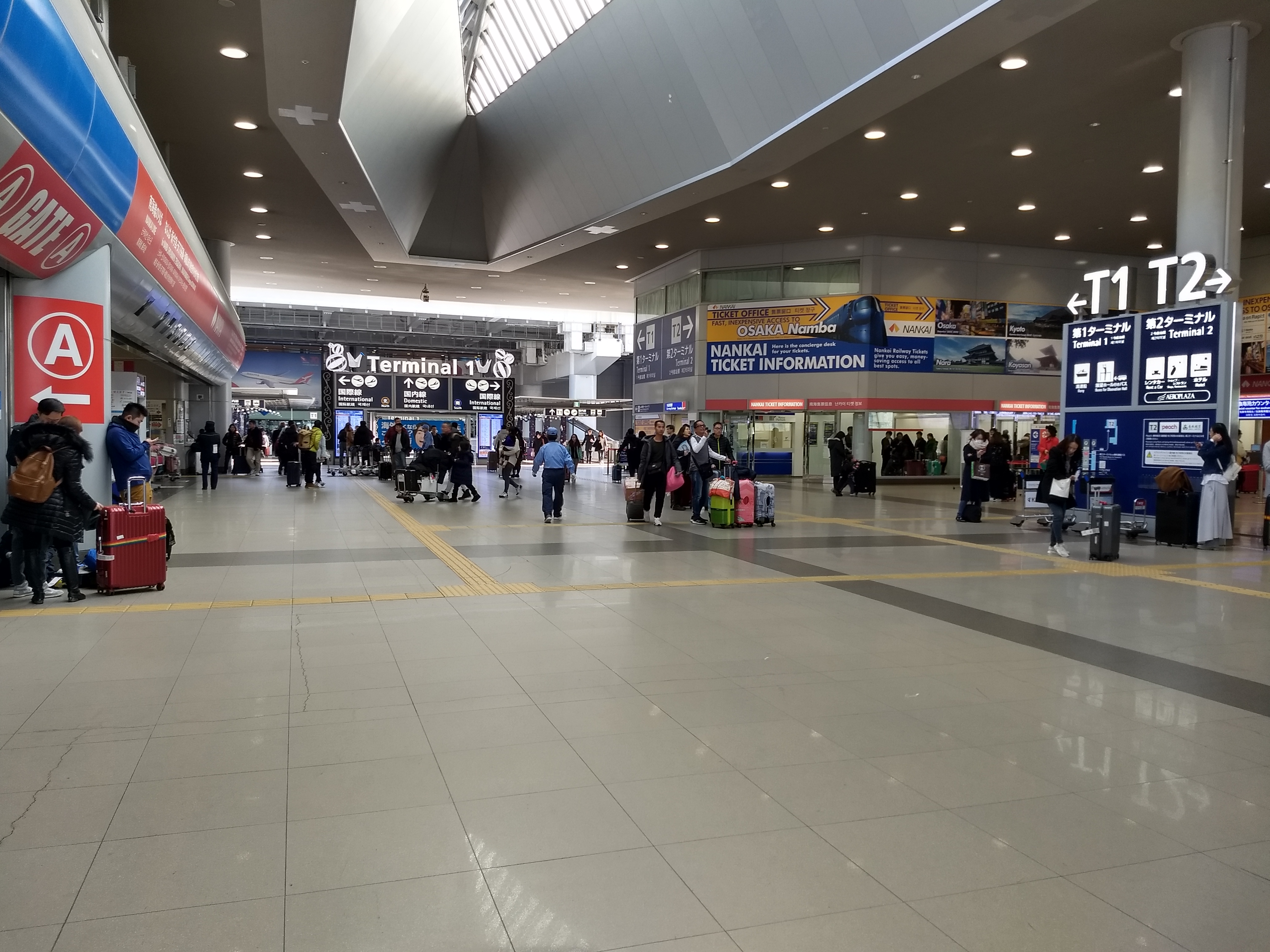
日本文が後ろに続きます。
The last day of each year is a good chance to look back on what happened in the year. Each time I wrap up what I did experience for the first time and what impressed me most in the year, I sum them up as a few keywords, and then I post some “words of the year” in this blog.
The words of the year 2001 were getting a flat within the Tokyo metropolitan area, a position change at the office, and Soarer. The word of the year 2002 was America. The words of the year 2003 were the airplane and the musical. The words of the year 2004 were the blog, Asian countries (Singapore and Hong Kong), and the GSM mobile phone. The words of the year 2005 were darts, the GSM and WCDMA mobile phone, and visiting Hong Kong again. The words of the year 2006 were the US stock and the mutual fund. The words of the year 2007 were changing my car and visiting Hawaii. The words of the year 2008 were England and Fukagawa. The words of the year 2009 were office position change, MacBook Pro and JR Seishun 18 Ticket. The words of the year 2010 were Taiwan, Singapore and Malaysia, iPhone and the credit card. The words of the year 2011 were the car, the British culture and China. The words of the year 2012 were Oji, the mahjong, the flight attendant and Facebook. The words of the year 2013 were Ayurveda, Korea, high school alumni and Tsuyoshi Takashiro. The words of the year 2014 were England and Android. The words of the year 2015 were Maine, United States; Estonia and transfer of workplace. The words of the year 2016 were traveling to places in Japan, mapping and Jeep.
Considering what I saw this year, I have decided that the words of the year 2017 are: Yurie Omi, NHK, shingles, and English exams.
Yurie Omi is, as I wrote in this entry, an NHK broadcaster, and an idol of me. For me, this year began with her and ended with her. I got to know her for the first time on New Year’s Buratamori, I watched the TV shows where she appeared, I went to Nagoya to see her presentation, and there I talked to her face-to-face.
At the same time, I got to know a wide variety of broadcasters of NHK. I didn’t know NHK broadcasters’ names so far, since I wasn’t interested at all in anything about so-called joshi-ana, or female announcers. All I knew among NHK announcers were Yumiko Udo and Maho Kuwako. This year I got to know Mayuko Wakuda, Keiko Nakamura, Tomoko Kogo, Izumi Tanaka, Aiko Terakado, Naoko Suzuki, Naoko Hashimoto, Sayuri Hori, Risa Hayashida, Nonoka Akaki and more, who hosted or made narrations in various types of NHK programs, from news shows to variety ones. I got to know male broadcasters as well, from a top-notch player like Shin’ichi Taketa to Kozo Takase, Jun’ichi Tosaka, Keita Mochizuki, Yuki Inoue and Masaiku Nomura. I got to know NHK’s human resource development system where rookies start their careers at one of NHK’s local broadcasting stations spreading nationwide and return to the Broadcasting Center in Tokyo after several years’ experiences. Plus, I got to know that, besides broadcasters, NHK has various kinds of options for employees such as correspondents, directors, broadcasting technicians, and more. One of the positions is assigned to the employees upon recruitment, and even if they wish to be a broadcaster when they are hired, they may be appointed as a director, and vice versa.
The third keyword is based on the fact that I was suffered from shingles this summer. I knew some of my friends and acquaintances suffered from shingles, but before I was really suffered from it I didn’t think it would be such a painful disease. Rashes appeared from the right side of my face to the top of my right ear, and my face quickly turned into a grotesque look. Early cure contributed to the distorted face returning to normal in a week or two, but an unbearable pain on the right side of my face followed and lasted for months. The hardest thing was that, though doctor said that I should warm up the suffered part, not cool down, no stores were selling warm canned coffee, warm pads or anything that could warm something up since it was mid-summer.
The last, this year I took English exams, both exams of English itself like TOEIC, and exams written in English such as CCNA Collaboration. This time I failed CCNA Collaboration, but in TOEIC I marked more than my target score. I want to take IELTS or something like that next year.
Probably the next year will be harder, but I’m looking forward to the forthcoming serendipities. Have a happy New Year!
今年も恒例の「キーワード」のまとめの時期がやってきました。
2001年のキーワード:都内一人暮らし、職場異動、ソアラ
2002年のキーワード:アメリカ
2003年のキーワード:飛行機、ミュージカル
2004年のキーワード:ブログ、アジア(シンガポール・香港)、GSM携帯電話
2005年のキーワード:ダーツ、GSM/WCDMA携帯電話、香港再訪
2006年のキーワード:米国株、ミューチャルファンド
2007年のキーワード:クルマの買い替え、ハワイ旅行
2008年のキーワード:イギリス、深川
2009年のキーワード:職場異動、MacBook Pro、青春18きっぷ
2010年のキーワード:台湾・シンガポール・マレーシア、iPhone、クレジットカード
2011年のキーワード:クルマ、イギリス文化、中国
2012年のキーワード:王子、麻雀、CA、Facebook
2013年のキーワード:アーユルヴェーダ、韓国、高校の同窓生、高城剛
2014年のキーワード:イギリス、Android
2015年のキーワード:アメリカ(メイン州)、エストニア、職場異動
2016年のキーワード:国内移動、地図作り、ジープ
でした。
そして今年のキーワードは
近江友里恵、NHK、帯状疱疹、英語の試験
にしたいと思います。
近江友里恵さんは、この前のエントリにも書いたとおり、今年はこの人に始まりこの人に終わったといっても過言ではないほどで、年始のブラタモリを見て知って以来、ずっと近江さんのファンになってしまいました。毎朝ニュースを見て、名古屋の講演会にも行き、そして質疑のパートでじかにお話もできました。
近江アナウンサーつながりで、NHKのこともより深く知ることができました。これまでいわゆる“女子アナ”の類にはほとんど興味はなく、ましてやNHKのアナウンサーなど、知っててもせいぜい有働由美子さんや桑子真帆さん程度で、あとはほとんど知らなかったんですが、近江アナウンサーのほかにも和久田麻由子アナウンサーや中村慶子アナウンサー、小郷知子アナウンサー、田中泉アナウンサー、寺門亜衣子アナウンサーや鈴木奈穂子アナウンサー、橋本奈穂子アナウンサー、保里小百合アナウンサー、林田理沙アナウンサー、赤木野々花アナウンサーなど、いろんなアナウンサーがいて、ニュース番組でニュースを読んだり、番組の司会をしたり、ナレーションをしたりなどいろんなことをしていることを知りました。男性アナウンサーも、トップクラスの“たけたん”こと武田真一アナウンサーをはじめ、“眉”こと高瀬耕造アナウンサー、“麿”こと登坂淳一アナウンサー、そのほか阿部渉アナウンサー、 望月啓太アナウンサー、井上裕貴アナウンサー、野村正育アナウンサーなどが番組に出ていることを知りました。またNHKのアナウンサーは、入局後まず地方局に送られて修行を積み、そこからその地方の拠点局へ異動したのち優秀な人が東京の放送局にやってくるというシステムになっていること、またアナウンサー職のほかにも記者、ディレクター、放送技術などの職種があり、入局時に希望や配属などで決まること、記者やディレクター志望でもアナウンサー職で採用されたり、その逆があったりすること、などなどのNHKの営みについても触れることができました。
今年の夏は帯状疱疹に悩まされました。帯状疱疹という言葉はよく耳にするし、周りでかかったことのある人の話は聞くんですが、いざ自分がなってみるとこんなに辛いものとは思いませんでした。私の場合は右の顔から耳にかけて発疹ができたんですが、みるみるうちにグロメンと化してしまい、ふためとみられないほど醜く変形してしまいました。治療開始が早かったのでグロメンは一週間もすれば元に戻ってきましたが、そのあと顔の右半分の耐え難い痛みが何ヶ月も続きました。痛いところは冷やしてはだめで、暖めなければならないんですが、なにせ真夏のときのこと、カイロも温かい缶コーヒーも売っていなかったので、暖めるものを探すのに苦労しました。
英語の試験は、英語そのものの試験(TOEIC)と、英語で受ける試験(CCNA Collaboration)と両方受けました。今年はCCNAのほうは落ちちゃいましたが、TOEICのほうは目標の点をクリアしたのでまあよしとしましょう。来年はIELTSあたり受けてみたいものです。
来年も前途多難ですが、また新しい出会いに期待したいものです。それでは良いお年を。
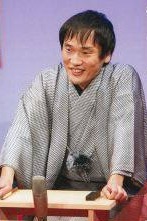
Shofukutei Riko (笑福亭里光) is a professional rakugo artist who speaks Kansai-dialect rakugo stories. Rakugo is, as written in Wikipedia, a form of Japanese verbal entertainment where the lone storyteller sits on stage and depicts a long and complicated comical (or sometimes sentimental) story using only a paper fan and a small cloth as props.
He was one of my classmates when we were junior high school students. Besides, he was one of my best friends. In junior high I talked him a lot, played with him a lot, belonged the same club as he did, and resigned from the club together with him on the same day. He sometimes played rakugo on stage in school events. His performance was rising above the level of amateur, so he was called shisho, a title which is used to a professional rakugo storytellers.
After we graduated from junior high, we went to different high school. We didn’t see each other for ages.
One day in 2012 I was staying in a hotel room watching an entertainment program on TV, where several rakugo artists who had just promoted to the shin’uchi rank were on stage and they were giving speeches in turn to show their thankful feelings for the promotion. The program reminded me of the wanted-to-be-a-rakugo-storyteller classmate. I wondered if he still kept up his hobby. Watching TV, I thought he might appear on such an entertainment program someday. To my surprise, he really did it in the very program that day.
According to the information online, after graduating from university he became one of the disciples of Shofukutei Tsuruko (笑福亭鶴光), one of well-known rakugo artists, to start his rakugo career in 1998. He promoted to the futatsume rank in July 2002 and became a shin’uchi in May 2012.
I tried to contact to him. Since he had a Twitter account, I sent a direct message to him. He replied to me soon. We talked a bit on Twitter for a while. Several months later we met face-to-face for the first time in more than 25 years. He had not changed at all since we saw in the junior high.
Now I sometimes go to his stage to listen to his story, and see him offstage. Last night I saw him in Shinjuku and went for a drink with him at an izakaya in the westgate area of Shinjuku. He was fine. We talked a lot. I drank too much and I have hangover this morning, though.
I think that being friends with public figures might help me have a chance to see the celebrity world, and maybe it would even change my life.
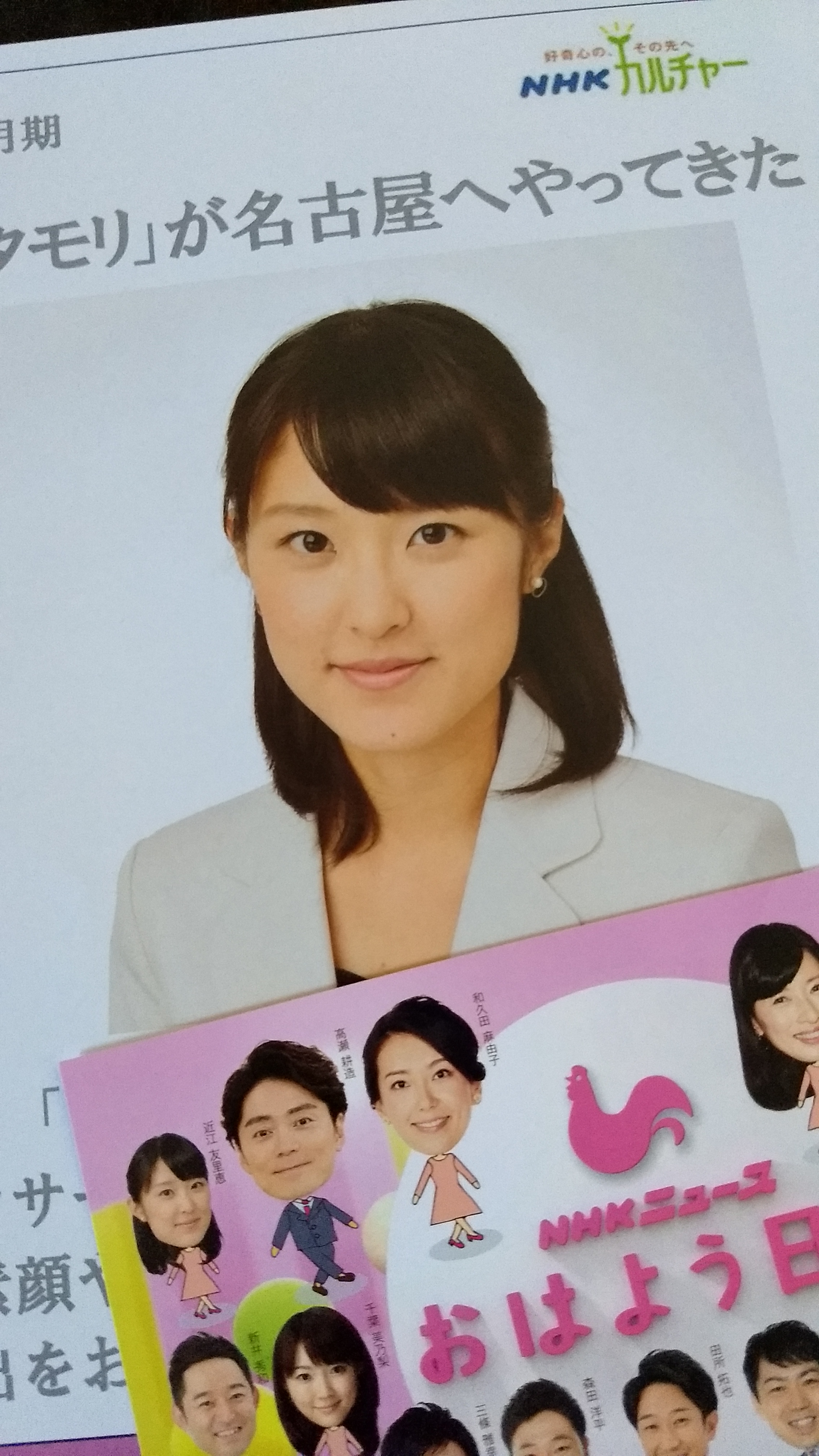
NHKのアナウンサーの近江友里恵さんのファンです。といっても今年のお正月に実家に帰省していたときにたまたま「ブラタモリ」をTVで見て初めて知ったんですが。「ブラタモリ」自体、桑子真帆アナウンサーがアシスタントをしていた時代に一度見たきりで、それまでほとんど見たことなかったのですが、このときは、昼に「伊勢」「横浜」の回の再放送をやっていて、さらに夜には「鶴瓶の家族に乾杯」とのコラボレーションスペシャルで成田山に行っていた回の放送があって、そこに出ていたアシスタントの近江アナウンサーがなんかいい味を出していて、注目するようになりました。
(more…)
According to Wikipedia, “Yurie Omi (born July 27, 1988) is a Japanese female announcer, television reporter, television personality, and news anchor for NHK. Omi is one of the hosts of NHK morning news show NHK News Ohayō Nippon. She is also the co-host of NHK television series Bura Tamori aired from April 2016.”
I’ve been a big fan of Yurie Omi since the beginning of this year when I sat in front of the TV by chance at my parents’ house and watched her for the first time in Bura Tamori (I had rarely seen it before, though). This program is a travel show where NHK’s broadcaster strolls Japan’s particular town or area with Tamori, one of Japan’s renowned TV personalities, and a geophysicist, a local historian, or a curator, to investigate the place’s topics such as terrain features, history, culture, and civil engineering.
Why do I think she is so attractive? I think the reason is three-fold. Firstly, she sometimes shows goofy behavior in her TV programs, although she is actually very smart and good-looking. She wore her dress back to front in the news show. In Bura Tamori, she read the thermometer incorrectly. (She said the temperature of hot spring water was 940 degrees Celcius while it really pointed 94.0 degrees.) Such slight weaknesses mean imperfection, which is what Japanese people value in tradition. This mentality makes the Japanese regard her weaknesses as charming. Secondly, she acts or speaks less highhandedly than average so-called “joshi-ana” and TV personalities. They often show off, but she doesn’t. They often speak aggressively, but she never does it. Her attitude like this gives a favorable impression to many Japanese viewers. Thirdly, most of her personality looks so similar to mine that I find something congenial in her. I don’t think she is such a personality that is good at thinking on her feet and speaking off the cuff with a ready wit. Rather, she looks genuine, and she can only do diligently what she has to do with simple honesty. Such characteristics are just like mine.
For those reasons, I got fascinated by her. I watch every TV program she appears in. I get up at five in the morning on weekdays to watch NHK’s morning news show she hosts. In Saturday evening I watch Bura Tamori to see her traveling with Tamori.
In addition to watching her on TV, I had a chance to see her with the naked eye. One day I got the information that she was going to hold a lecture presentation at Nagoya on September 30 and was requesting for audience. I applied for it because it might be my once-in-a-lifetime chance to meet her up.
(more…)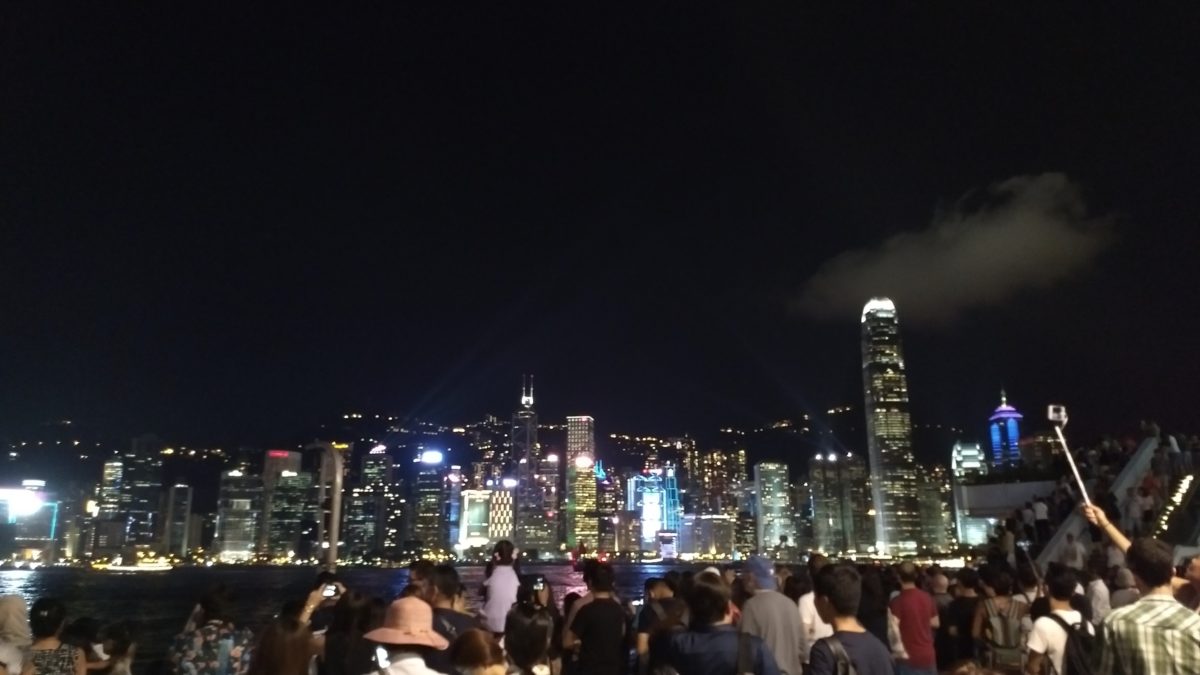
日本文が後ろに続きます。
A few weeks ago I visited Hong Kong to deposit part of my fixed amount savings, deposited in Japan’s post office and matured last month, in HSBC Hong Kong where I’ve had my bank account for 13 years, and to buy some gold which was a bit inexpensive than what you buy in Japan. Since nobody can predict what will happen to Japan and its economy in the future, I think it is reasonable to diversify assets both nationally and internationally to reduce risks of the loss due to possible economic confusion.
I found out two notable things through this trip. One is that Kagoshima is in fact one of the important gateways of Japan for some foreign travelers. From a Tokyoite’s point of view, Kagoshima looks like the southernmost far end of Japan, but for some people, it is not. I heard that a sales clerk of Chow Sang Sang’s Central store selling a gold necklace to me saying that she had ever been to Japan for leisure, entering Japan at Kagoshima Airport, and then moved east to Osaka, Kyoto, and Tokyo, where she departed. She also said that it was a golden route for travelers from China and Hong Kong. Those facts suggest that cities like Kagoshima, Nagasaki, and Fukuoka should look at Asian countries rather than Tokyo to survive in the future.
The other thing is my lacking ability of English conversation. When I talked to the sales clerk or any other people in Hong Kong, all I could say to those people were one-to-two-word sentences like “Yeah,” “No,” “Thank you,” “Oh really?” or something like that. Response speed to English was apparently slower than that of a few years ago. Clearly, it was because I hadn’t used English so much for years as it is now irrelevant to me in the workplace. All I can do (and need to do) would be to have at least my home Englishized to get accustomed to the English environment and help live in an English way.
先日、香港へ行ってきました。郵便貯金の定額貯金が満期を迎えたので、一部をハンドキャリーして13年前に開設したHSBCの口座に入金するのと、現地で金製品を買うためです(日本で買うより安いのです)。この先日本がどうなるかわからない中、国際的に資産を分散しておくのが理にかなっているかと。
旅行記をフォートラベルに転載しました。
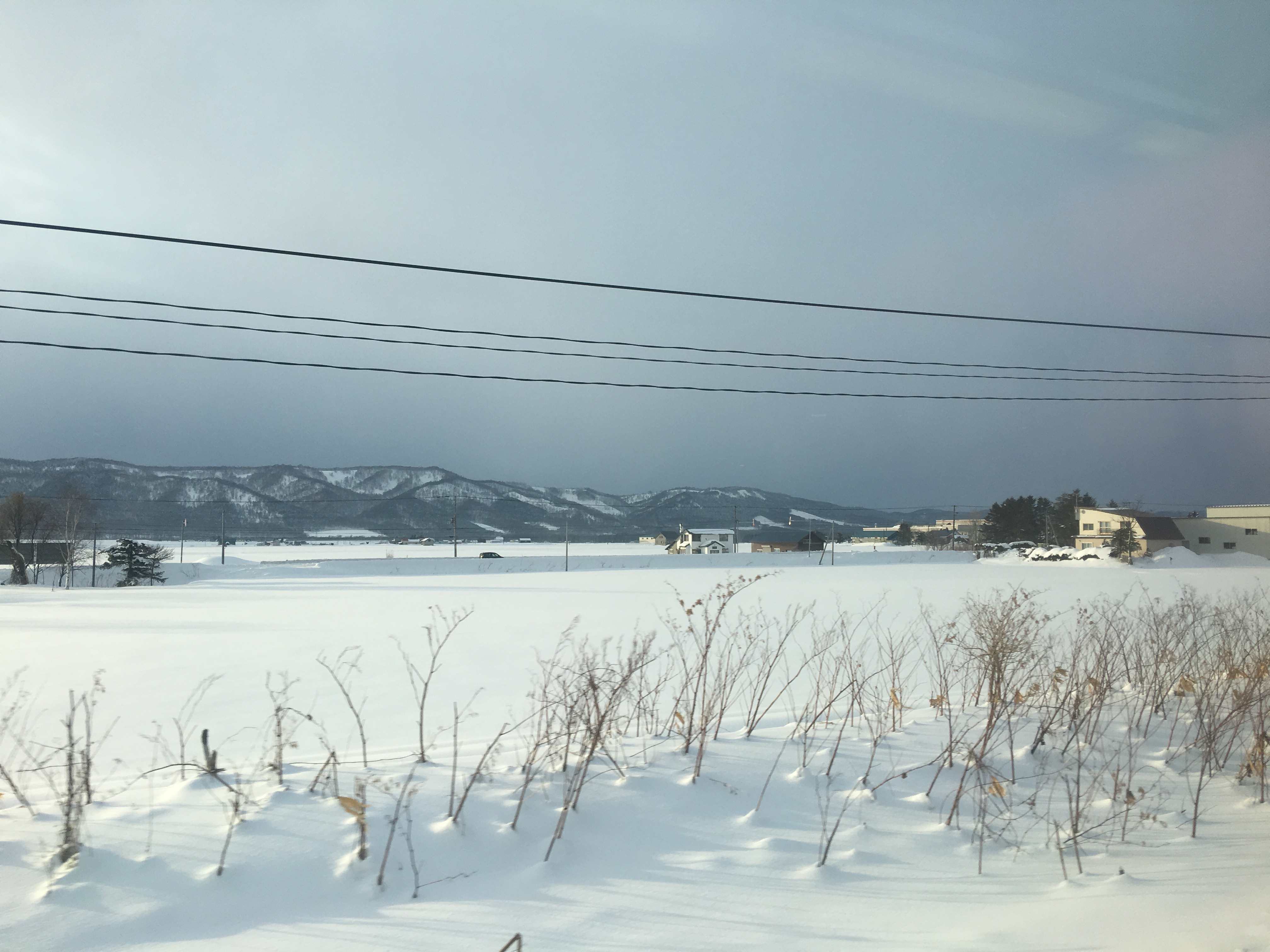

日本文はフォートラベルに転載しました。
https://4travel.jp/travelogue/11321411
Though it was almost half a year ago, I visited Wakkanai, the northernmost end of Hokkaido. Since it was the beginning of January this year, it was extremely cold outside with plenty of snow and the streets were very slippery.





Wakkanai is deeply related to Russia, since this city is just 40 kilometers away from the southern end of Sakhalin. When Sakhalin was part of Japan in the beginning of the 20th century, the city of Wakkanai played an important role in connecting to ports of Sakhalin by ferry.






Defense is also important since it is very close to the border and there is such a risk to let illegal immigrants in and to let foreign ships invade this town.

Wakkanai is one of Japan’s cities symbolizing tragedy of the WWII. When the USSR began invasion to the southern half of the Sakhalin Island after Japan’s surrender in August 1945, nine young women were working at a telephone exchange in the island. They were encouraged to escape from the island to flee to Hokkaido as it was going to be a dangerous place very soon. They refused to do it and chose to stay there because they wanted to do their job until the last time. At the time when Soviet Union’s soldiers came to where they worked, they took their lives as they didn’t want to be captured and molested by the soldiers. The memorial monument for them is build on the hill of Wakkanai city. I was eager to see this monument, but I couldn’t do it since the hill was closed due to the heavy winter snow.

With one more day I could’ve visited the Cape Soya and see the Sakhalin Island over the Soya Channel. This would be a good reason for me to visit Wakkanai again this summer.




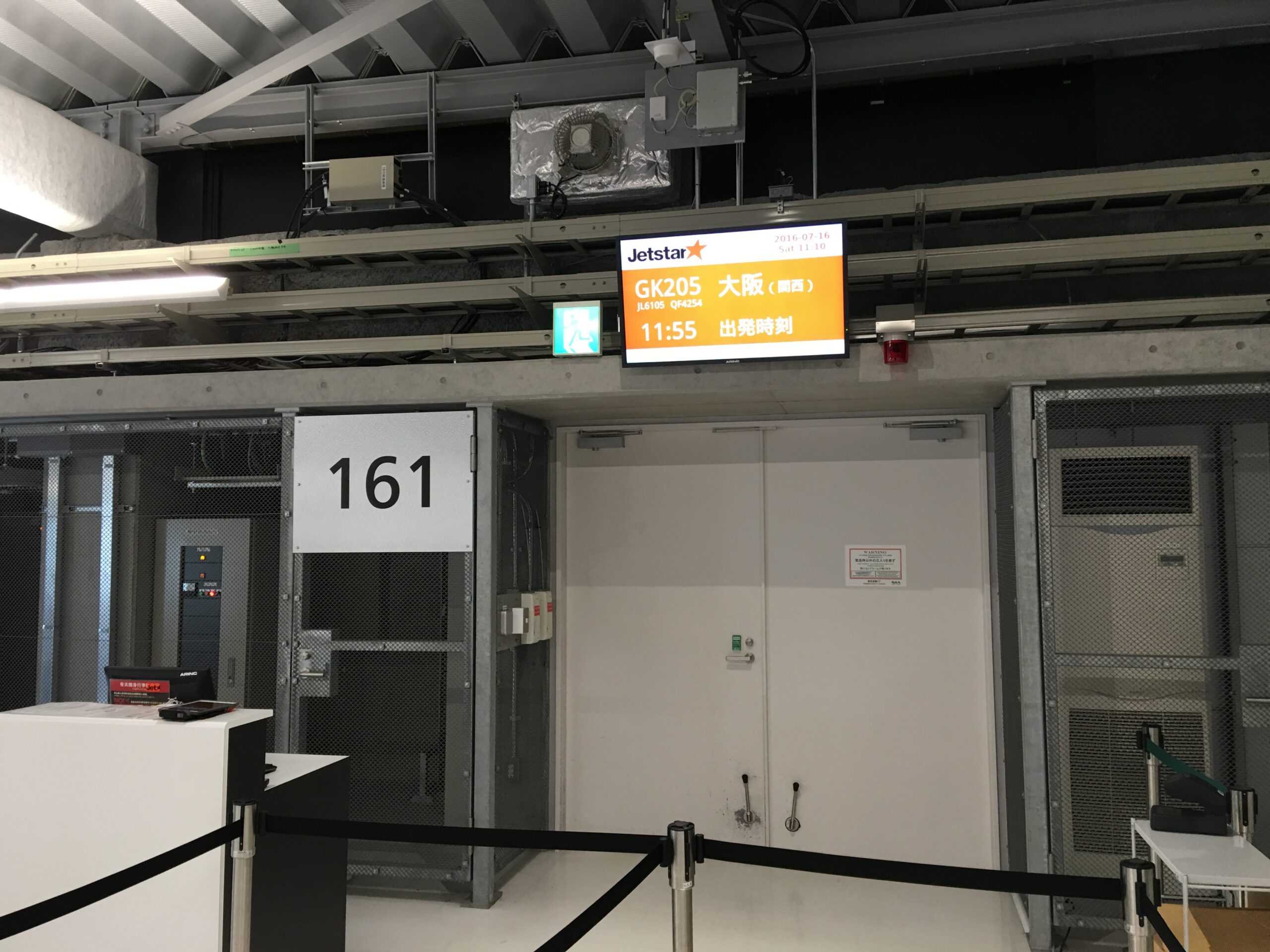
日本文が後ろに続きます。
Although I was posting only two entries including this one in each language this year, the time seems to come to look back the year 2016. At every year-end, I make it a rule to list up the most impressive things and events I experienced or encountered each year in some keywords. Words of the past years are:
The words of the year for 2001: getting a flat within the Tokyo metropolitan area, a position change at the office, and Soarer.
The words of the year for 2002: America.
The words of the year for 2003: the airplane and the musical.
The words of the year for 2004: the blog, Asian countries (Singapore and Hong Kong), and the GSM mobile phone.
The words of the year for 2005: darts, the GSM and WCDMA mobile phone, and visiting Hong Kong again.
The words of the year for 2006: the US stock and the mutual fund.
The words of the year for 2007: changing my car and visiting Hawaii.
The words of the year for 2008: England and Fukagawa.
The words of the year for 2009: office position change, MacBook Pro and JR Seishun 18 Ticket.
The words of the year for 2010: Taiwan, Singapore and Malaysia; iPhone; and the credit card.
The words of the year for 2011: the car, the British culture and China.
The words of the year for 2012: Oji, the mahjong, the flight attendant and Facebook.
The words of the year for 2013: Ayurveda, Korea, high school alumni and Tsuyoshi Takashiro.
The words of the year 2014: England and Android.
The words of the year 2015: Maine, United States; Estonia and transfer of workplace.
Now I think this year’s keywords for me are traveling to places in Japan and Jeep.
Traveling to places in Japan is what I did this year most. I flew to Hiroshima, Fukuoka, Osaka, Okinawa, and more for both business and private. I did visit abroad as well (Taipei and Hong Kong), but this year is the time for me to explore throughout this country.
Changing my car to Jeep also encouraged me to explore this country. I bought a 2013 Jeep Compass this summer instead of letting my VW Polo pass the bi-yearly car inspection for pretty much money. This newer car is very nice, and I’ve driven more than 3,000 miles for five months since I got it.
This year I experienced many more things than before other than what I listed here. A number of celebs and famous persons, such as David Bowie, Prince, Charmian Carr, Thai King Bhumibol Adulyadej, George Michael, Carrie Fisher, and her mother Debbie Reynolds, have died for a single year. Disasters and terrorist attacks hit all over the world. Politicians and people of many countries have been moving from globalization to nation-centric mindsets. Nobody knows what will happen next year. I think all each individual can do to protect him-or-herself would be to put all of his or her assets in many places in the world and prepare for moving wherever he or she needs.
今年は結局、このエントリを入れて各言語それぞれ2エントリしか投稿しませんでしたが、もう今年を振り返る時期がやってきたようです。
2001年のキーワード:都内一人暮らし、職場異動、ソアラ
2002年のキーワード:アメリカ
2003年のキーワード:飛行機、ミュージカル
2004年のキーワード:ブログ、アジア(シンガポール・香港)、GSM携帯電話
2005年のキーワード:ダーツ、GSM/WCDMA携帯電話、香港再訪
2006年のキーワード:米国株、ミューチャルファンド
2007年のキーワード:クルマの買い替え、ハワイ旅行
2008年のキーワード:イギリス、深川
2009年のキーワード:職場異動、MacBook Pro、青春18きっぷ
2010年のキーワード:台湾・シンガポール・マレーシア、iPhone、クレジットカード
2011年のキーワード:クルマ、イギリス文化、中国
2012年のキーワード:王子、麻雀、CA、Facebook
2013年のキーワード:アーユルヴェーダ、韓国、高校の同窓生、高城剛
2014年のキーワード:イギリス、Android
2015年のキーワード:アメリカ(メイン州)、エストニア、職場異動
だったのですが、今年のキーワードは
国内移動、ジープ
にします。
国内移動は、広島、福岡、仙台、大阪、沖縄といった国内に今年は公私ともによく移動しました。海外にも行きましたが(台北、香港)、今年は国内に目を向けた年といえるかもしれません。
ジープにクルマを買い替えたことも国内移動に拍車をかけたかもしれません。今までのポロを高いお金をかけて車検を通す代わりに買い替えるという選択をしました。まあアメリカの車に一度乗ってみたかったというのもありましたが。夏に買い替えて、この5ヶ月ほどで5000kmほど乗っています。
上記にあげた以外にも、今年はいろんなことがありました。デヴィッド・ボウイやプリンス、ジョージ・マイケル、「スター・ウォーズ」のレイア姫のキャリー・フィッシャーと母のデビー・レイノルズ、「サウンド・オブ・ミュージック」の17歳の人から井上竜じいに至るまで、セレブや有名人がかなり多く亡くなりました。熊本でも地震があり、糸魚川で火災があり、災害やテロが世界中で起こりました。来年も何がおこるかわかりません。個人としてできることは、自分の資産をできるだけ世界中に分散して、必要なところにどこでも移動できるように準備しておくことぐらいではないでしょうか。
I’m adding one other word of the year 2016: mapping. At first, I joined Waze to make a map for the sat nav app, and then I became a mapper of Openstreetmap. Mainly I have added English name tags to ways, buildings, and points within Japan for the convenience of foreign people who may use Maps.me or Magic Earth and only read English. That’s why the keywords of the year 2016 are traveling to places in Japan, mapping and Jeep.
2016年のキーワードとして地図作りを追加したいと思います。この年はオンライン地図の作成にはまった年でした。はじめの頃はカーナビ用にWazeを使って近所の地図を作っていて、そのうちOpenstreetmapのマッパーになって主に日本国内のウェイや建物やポイントに英語のnameタグを追加する作業をやっています。なので2016年のキーワードは国内移動、地図作り、ジープにします。